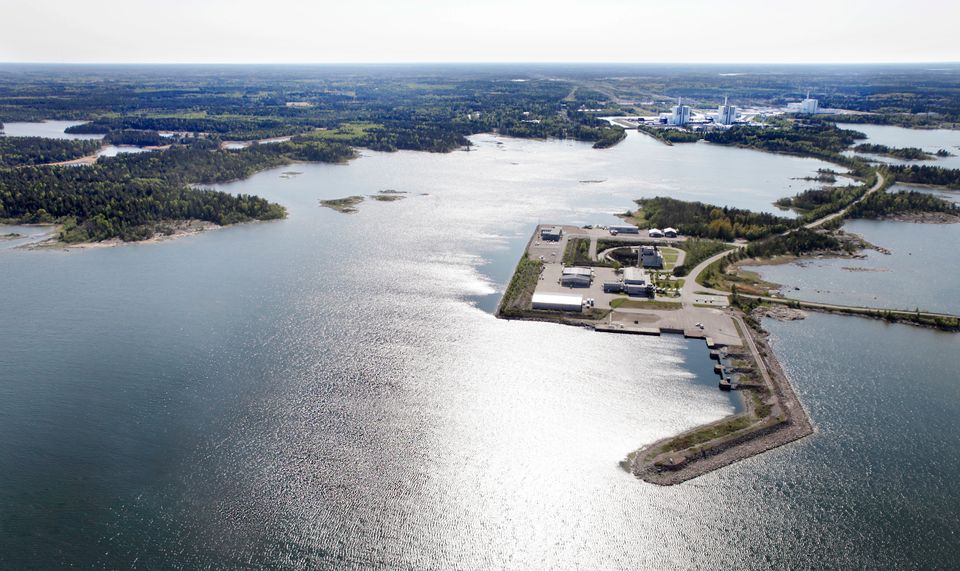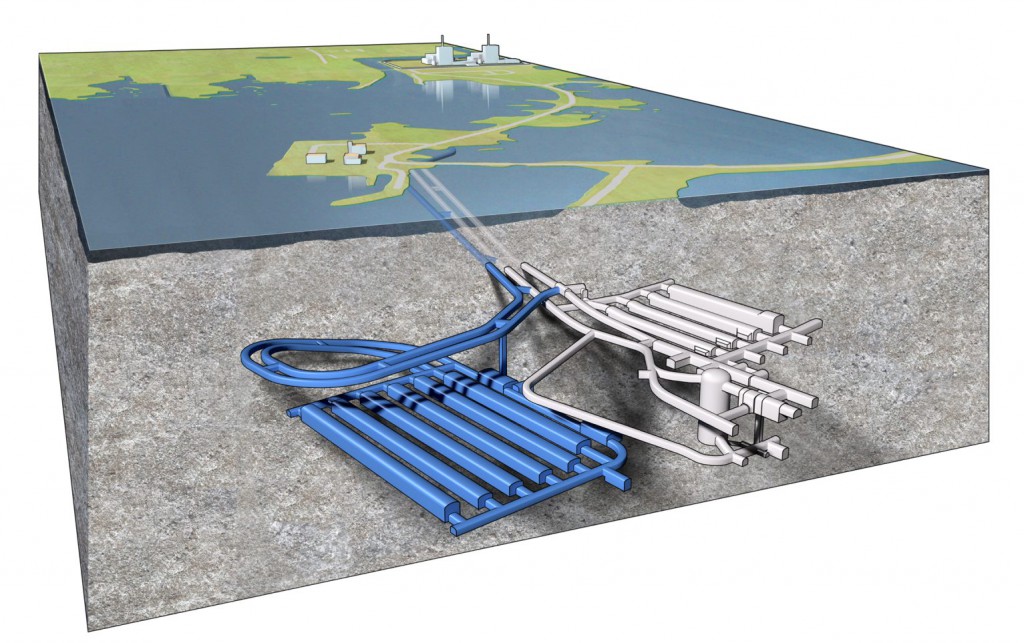
Sweden's radioactive waste management company Svensk Kärnbränslehantering AB (SKB) has taken over Forsmark's port from former owner Forsmark's power group, FKA. Among other things, SKB plans to build an additional berth to accommodate more ships in view of its upcoming construction projects. "The port is an important link in our mission to dispose of and transport radioactive waste. This means that SKB will be responsible for port operations, receiving ships, monitoring and maintenance," says Petter Olsson, port owner at SKB.
Currently the port is mainly used by the ship M/s Sigrid that transports radioactive waste to SFR, final repository for short-lived radioactive waste, as well as transporting used nuclear fuel from Forsmark's NPP to the intermediate storage facility Clab in Oskarshamn. FKA's operations are not affected by the takeover.
SKB is now preparing for both the expansion of SFR and the construction and operation of a used fuel repository. These two major construction projects will require materials to be transported to and from the buildings and rock masses to be transported away from the area.
Assuming it receives the necessary environmental approvals, SKB expects blasting to begin to expand the SFR in autumn 2024. The aim is to triple its size to enable it to take demolition waste from decommissioned Swedish NPPs. The expansion will take about six years to complete. In the initial stage, earthworks, water treatment plant and other infrastructure will be put in place. In the second stage, tunnelling work in the rock underground will be carried out. SFR was built to accommodate 63,000 cubic metres. It was also designed for a second stage to hold up to 90,000 cubic metres. However, the second stage was never built, as land repositories were established at the NPPs. In addition, the power companies improved on volume optimisation of the waste.
The current plan is to expand SFR to take 180,000 cubic metres of low and medium waste, explains Jerry Westerstedt, programme manager for the expansion of SFR. He says a lot of administrative work is underway for contract procurement, but some preparatory work is also being done at the ground surface and on sit.

SKB in 2022 received environmental permits from the Land & Environmental Court for the extension of SFR. However, in a preliminary safety analysis report (PSAR) must be submitted to the Radiation Safety Authority (SSM). An initial safety report was submitted in 2014 but must now be supplemented before construction starts. Work on the PSAR has been ongoing since 2016, SKB noted, although in recent years it has been more intensive. It is significant work that has been carried out partly with updated analyses and partly with internal security reviews.
The SFR repository is situated 60 metres below the bottom of the Baltic Sea and began operations in 1988. The facility comprises four 160 metre long rock vaults and a chamber in the bedrock with a 50 metre high concrete silo for the most radioactive waste. Two parallel kilometre-long access tunnels link the facility to the surface. Most of the short-lived waste deposited in the SFR comes from Swedish NPPs, but radioactive waste from hospitals, veterinary medicine, research and industry is also deposited there. Once extended, the repository will have six new rock vaults, 240-275 metres long. The intention is to construct the extension at a depth of 120-140 metres, level with the lowest part of the current SFR repository.